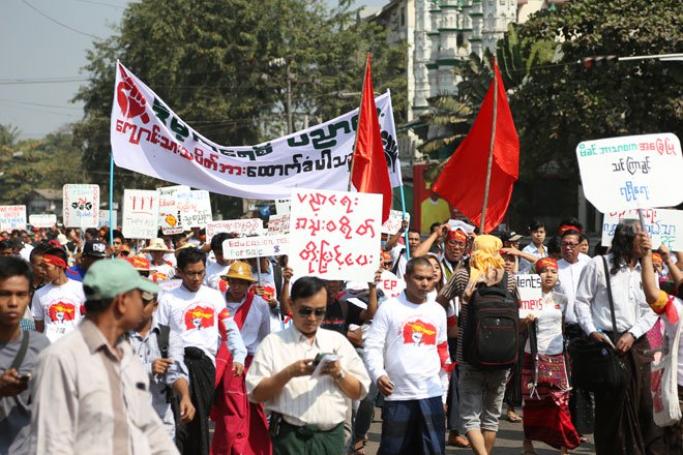Myanmar’s university students are known at home and abroad for their strident activism against dictatorship. In the old days, grainy images of defiant marchers, demanding greater rights and an end to authoritarian rule, circulated around the world.
Many still point to the 1962 destruction, by dynamite, of the Student Union Building at the University of Yangon as the first major blow against free academic enquiry and student activity on university campuses. It is no surprise that a campaign is underway to have it rebuilt.
That re-building matters because subsequent decades saw Myanmar’s universities enter a period of stagnation. The low-point came with the violence and trauma of 1988.
Sadly, that blood-soaked round of student resistance to military government was followed by too many years when campuses went mouldy, the product of fear about the revolutionary potential of youthful agitation. In a society where education is greatly valued, the decimation of institutions of higher learning has been a tragic outcome of political games.
Those games continue. Groups of students have been on the march to show their displeasure at antiquated attitudes to student rights and educational management. Confusion and disquiet about the reform of universities has sparked this new round of protests.
Such protests are an important test of the gradual liberalisation of Myanmar society. They also mark a new beginning for the country’s universities. As a regular visitor to such institutions, it is clear to me that the opportunity for Myanmar’s universities to change direction has arrived.
On urban campuses, undergraduate students are being welcomed back and the entire tone of discussion is lively and fresh. International relationships, long stale, are being rejuvenated. Big money for capacity building, refurbishment and new investment is starting to flow.
It is a good time to be a student or a member of a university’s academic staff. There is understandable expectation that things will keep getting better. This is where the students come in. As Myanmar’s universities are revived, and as the political environment changes around them, higher education is becoming a new battleground.
For now, decisions about higher education often revert to distant authorities, even ministers. Students are understandably seeking more of a say in how their institutions are run.
It is only natural that the contentious topic of student unionism is attracting much attention. Students want to be more active in the re-construction of Myanmar’s academic culture. As the placards proclaim, they want “democratic education”.
For that to happen, building confidence among political leaders, university managers, academic staff and the new generation of students will require substantial cultural change.
Nonetheless there is hope: teaching in potentially sensitive areas of the political and social sciences is happening more often than at any time in living memory.
But other changes to university life won’t happen quickly or easily, and of the initial efforts to bolster academic capacity in Myanmar, some have already faded. It will be decades, at the earliest, before the entire higher education system has been revived.
Right now, there are also grumbles among investors that the labour force lacks adequate training to work in technical and industrial fields and to handle the challenges of a rapidly changing political and economic landscape.
The risk is that another generation of Myanmar’s young people is left behind: unable to compete against other Southeast Asian economies where higher skills and better education are bringing strong income growth.
But such practical concerns are only one part of the story. It is the moral demand for more inclusive curriculums and more transparent management that needs our attention. Building trust and learning to work together will take time, and students, including the current generation of marchers, will need to be involved every step of the way.
(Dr Nicholas Farrelly is a partner at Glenloch Advisory and a Fellow in the Bell School of Asia Pacific Affairs at the Australian National University).
This Article first appeared in the February 19, 2015 edition of Mizzima Weekly.
Mizzima Weekly is available in print in Yangon through Innwa Bookstore and through online subscription at www.mzineplus.com












